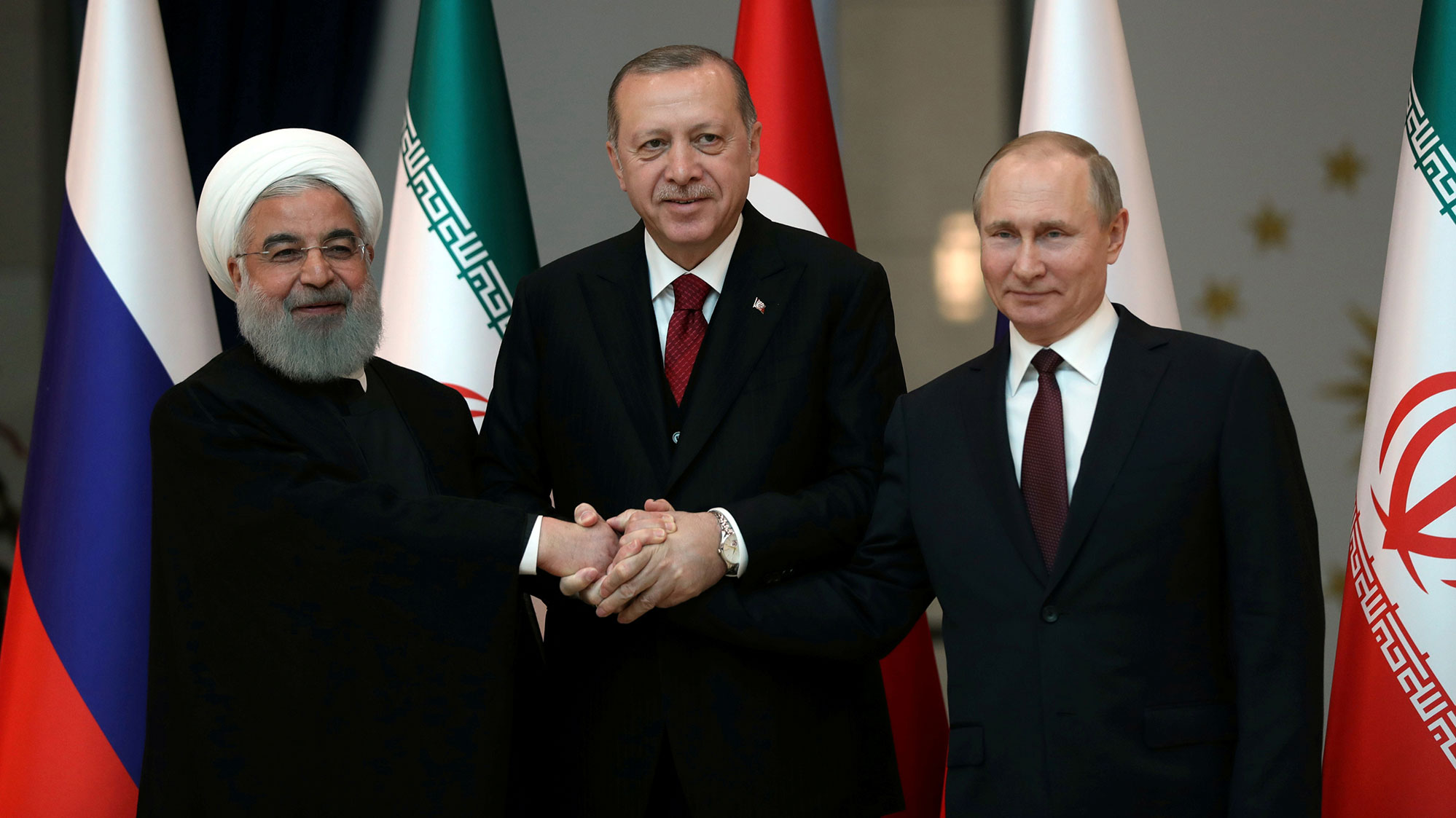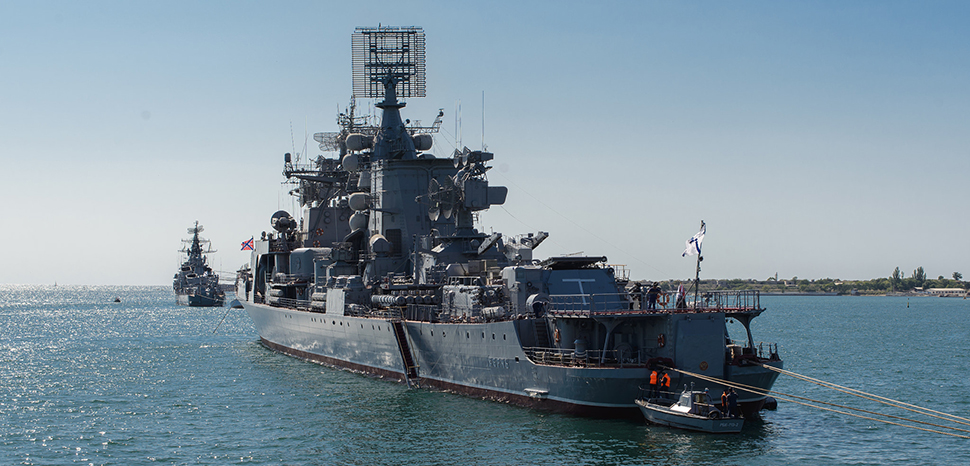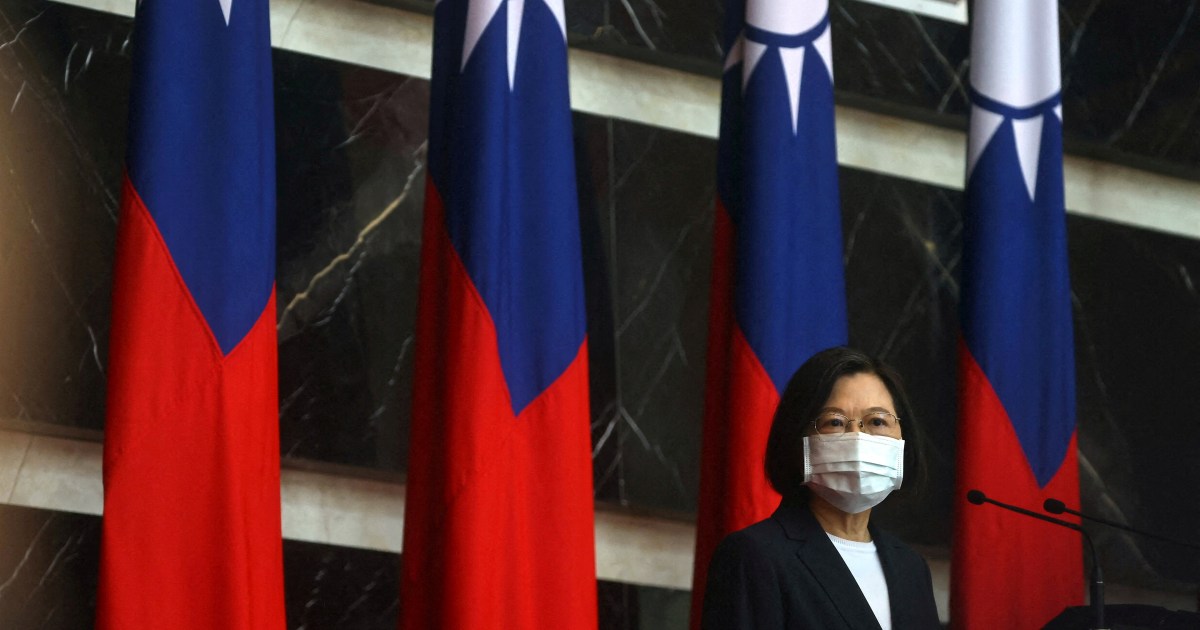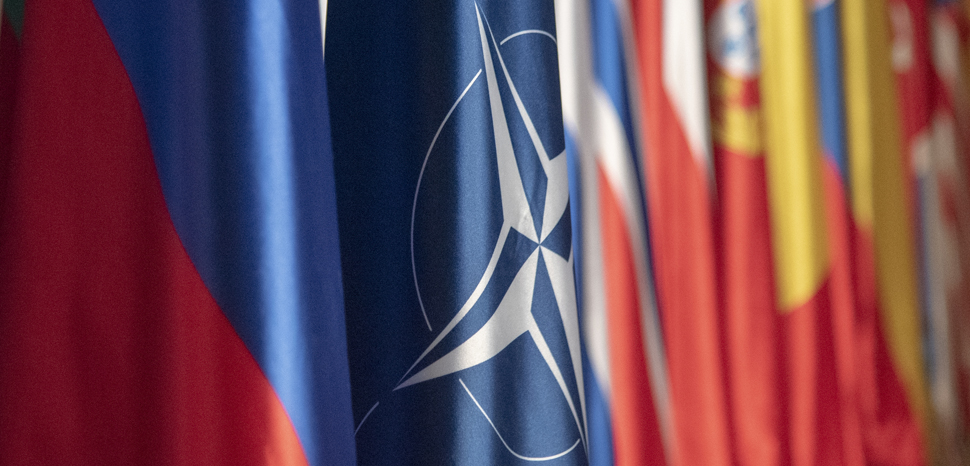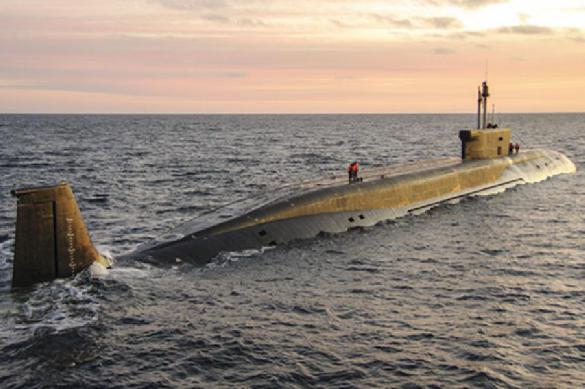[ad_1]
Kholmogorov is at all times fascinating. You will discover his work on RI right here. (Extremely really helpful)
When in Moscow a number of weeks in the past, I met the Russian conservative thinker Egor Kholmogorov.

Sadly, my interview of him was minimize quick after solely about 5 minutes, however I used to be capable of document an impromptu discuss he gave on the convention we have been each attending. So, under are the transcripts of each the quick interview and Egor’s speech. In each of those, he explains his philosophy of ‘offensive isolationism.’
Paul Robinson (PR): I’m writing a guide on Russian conservatism and need to ask you to touch upon a number of issues that you’ve got beforehand mentioned. As an example, you say that Russia is an island and also you converse of the need of Russian isolationism, however on the similar time you discuss of the technique of ‘offensive isolationism.’ Are you able to touch upon this obvious contradiction?
Egor Kholmogorov (EK): The purpose is that strategically, when it comes to tradition, as a civilization, as a state, Russia is thinking about isolation. That’s, as a lot as doable it shouldn’t intervene very a lot in world affairs. It shouldn’t be frequently supporting the worldwide stability by the use of interventions in far-off lands, particularly as these are taking increasingly more absurd kinds.
An instance is the geopolitically-founded intervention in Syria. Now Russian Muslims are demanding that Russia ought to punish the regime of Myanmar. However Myanmar is totally irrelevant to nearly all of Russian residents. However there’s an issue linked with the truth that what we now name Russia got here into being in 1991 in somewhat an absurd method.
Russia as a topic of worldwide regulation was decidedly smaller than Russia as a historic reality, as a historic territory, as a territory inhabited by Russians. Consequently, in our present goal circumstances, isolationism is not possible as we’re below continuous menace. American tanks are in Estonia, 100 kilometers from St Petersburg. NATO navy bases would possibly seem in Ukraine. Thus Russia is at the moment obliged to assault or counter-attack not directly, as a result of it’s objectively threatened.
PR: What do imply by the phrase ‘assault’?
EK: Unfold our affect.
PR: Utilizing gentle energy?
EK: Not essentially. In some issues, I’m generally known as a fierce interventionist. When Ukraine is being mentioned, I’ve at all times supported the firmest decision of this downside, for using the Russian armed forces in opposition to the regime which has taken energy in Kiev. As a result of it’s objectively prison. It’s a rustic, a state, which may’t exist in its present type. Ukraine will both be an aggressor, which drags the West into battle with Russia, or one thing will occur to it, like it’ll disintegrate into two or extra items.
General, that is certainly gentle energy, it’s about constructing a system of diplomatic coalitions, it’s about constructing a system of cultural affect, what’s known as ‘the Russian world.’ For giant components of Asia and Europe, Russia tradition is the means by which these areas are included in world tradition. Take Moldova, for instance. Moldova hasn’t joined the best stage of world tradition through Shakespeare or Goethe, however through Pushkin, who lived for a very long time in Kishinev, and so forth.
If we discuss elevating the standard of tradition, the standard of lifetime of the entire space generally known as the post-Soviet nations, a phrase I don’t like as I discover the entire theme of the Soviet Union problematic, then their motion upwards, their improvement, are in a technique or one other linked with Russia, with Russian affect. Any try and orient them in the direction of the West, or let’s say in the direction of Saudi Arabia, will finish in degradation, in disaster.
PR: However you have been in opposition to the intervention in Syria.
EK: I wouldn’t say in opposition to. I used to be merely sceptical about it. To this point nothing horrible has come of it. Once I was requested if it could develop into a brand new Afganistan, I instantly replied that no, it wouldn’t, it’s a special geography, a special nation. It’s simply that in circumstances the place Russia has a lot of pressing issues, in circumstances the place it has the burdensome and nonetheless unresolved Ukrainian disaster on its borders, flying off to far off lands is not sensible.
PR: What do you consider the concept that Russia is a definite civilization? Are you might be Russian nationalist who thinks ‘Russia for the Russians’ or are you a Eurasianist?
EK: I’m undoubtedly not a Eurasianist. I’m a nationalist.
Egor Kholmogorov speech:
On condition that I’ve been a political journalist for fairly a very long time, it appears to me that I can say a few phrases which received’t be in any respect trivial. A while in the past, about two years, I wrote an article within the journal Notebooks on Conservatism about Robert Kaplan’s guide The Revenge of Geography. Robert Kaplan formulated a fairly aggressive thesis that the distinction between liberal political idealists and conservative political realists in American overseas coverage debates is the distinction between cannibals.
One cannibal asserts that we should always take solely probably the most lovely and engaging younger ladies. And the opposite says that, no, all of us share the identical ideas, we should always eat all people at all times. The primary place is that of the everyday realist. The second is that of the everyday liberal: let’s eat all people as a result of we have now ideas, concepts.
We will see this within the distinction between the 2 approaches in the direction of, say, Yugoslavia or Iraq. One says that all of it relies on how far our drones fly and the way assured we’re that we are able to perform air strikes. The opposite says that, no, we should always in any respect prices convey democracy to this or that area.
Firstly of this yr, after President Trump’s inauguration, there was a interval through which we hoped for dialogue with American realists. Henry Kissinger was often named as a form of guru of this strategy. And on the peak of those raptures and hopes I made a decision to check his newest guide World Order, with a view to perceive the ideas we may observe amongst American realists. And these ideas have been certainly revealed.
The primary is unconditional orientation in the direction of pursuits and the correlation of those pursuits by a pluralistic, so-called Westphalian system, which permits a lot of small states to type coalitions amongst themselves in opposition to any hegemon. In actuality, this isn’t a really historic conception, as a result of if we recall the nations who signed the Treaty of Westphalia, we discover that all of them disappeared from the scene within the subsequent 250 years and have been changed by massive nationwide states with imperial components.
The second factor that I observed in Kissinger was that he clearly doesn’t perceive find out how to combine his imagining of Russia into this Westphalian system. Russia is simply too massive, and it’s like an enormous elephant abruptly entered the sandbox through which little children are enjoying and tells them ‘I’m going to play with you.’ And when the elephant begins to play within the sandbox, based on the identical guidelines, we observe that on that aspect of the field the place he’s enjoying, he instantly begins to win. And so the query arises of find out how to get the elephant out of the sandbox and usually find out how to minimize him up into little items which may’t play any video games in any respect or at any fee would trigger such a way of hysteria.
And when Kissinger speaks about Russia, he abruptly slips into the language of the Chilly Warfare, together with his key thesis being that Russia is at all times afraid and so is at all times aggressively increasing in all instructions. That is a completely irrational course of, which may’t be stopped, and so it’s fairly not possible to play a high-grade recreation with Russia based on the principles.
Kaplan talks about the identical factor, however extra subtly, which shocked me. It shocked me {that a} man like Kaplan, who’s aggressively inclined in the direction of the world exterior the borders of the USA, understands Russia with some subtlety. Specifically, he understands that any collapse of Russia is simply a short lived phenomenon and that after the cycle of collapse there will probably be a cycle of reconstitution.
We’ve got to know and acknowledge that issues look very completely different when considered from Russia. Up to now 400 years Russia has endured 4 large-scale European interventions: from Poland within the seventeenth century; from Sweden within the 18th, which we have now to confess we began; that of France and all the European coalition within the nineteenth century, and that of the German Reich within the twentieth. Given this, it’s considerably comedian to say that Russia has an irrational worry of invasion. It could be far more wise to deal with the explanations which maintain inducing this or that intervention into the depths of Russia, and which usually don’t end up effectively for the intervenors. However, historical past is coming spherical full circle once more.
When individuals say that it’s not possible to achieve settlement with Russia on overseas coverage, I feel that they’re fully improper. What will we imply by Russia? A geopolitical topic? Political topics don’t have any cause, no mind, solely geographical borders. Correspondingly, they’ll’t discuss something. But when we’re speaking about governments, or the ideological items which make up the governments, then we are able to see that within the second half of the 20 th century Russian overseas coverage ideology drifted in the direction of a rejection of any type of interventionism, in the direction of an acceptance of isolationism as Russian civilization’s fundamental overseas coverage precept.
Right here, it’s sufficient to say names like Aleksandr Solzhenitsyn and Vadim Tsymbursky. Within the first case, a nationwide ideologue, who in his Harvard speech sought to provide a worldwide understanding of the Russian perspective. Within the second case, an awesome geopolitical thinker who is unfortunately not well-known within the West.
Studying Kaplan, I sadly noticed that he doesn’t in any respect know the Russian geopolitical custom and refers to fully unimportant figures when he interprets Russian views of geopolitics. If we have a look at the worldwide interventionist conception of Eurasianism, as interpreted by Dugin, we see that it too is kind of isolationist.
It’s primarily based on the inevitable contradiction of the concepts of sea and land, and crudely talking claims not more than half the world. If you happen to evaluate it to the worldwide American idea which in precept doesn’t acknowledge any borders, it’s fairly reasonable in its pretensions. I nonetheless discover it unacceptable and fairly absurd, however all the identical it’s comparatively fairly reasonable.
It’s value remembering the story about Solzhenitsyn, when he was invited to breakfast with President Reagan and he refused in a very sharp type, as a result of they needed to seat him amongst dissidents with decidedly anti-Russian views. The Russophobic Richard Pipes was meant to be at this assembly. And Solzhenitsyn wrote a very fascinating letter to Reagan, which it’s value studying, which is one web page lengthy.
On this, he says:
Mister president your closest advisors like Pipes are systematically discrediting me saying that I’m a Russian nationalist and am preaching aggression. But when my concepts triumph, the very first thing Russia will do is reject this loopy imperialist coverage within the far reaches of the world. What would I put as a replacement?
I got here right here pondering that America would assist free Russia from communism, and what do I see? I see American generals discussing plans for a nuclear strike on the Russian components of Russia, on this method hoping to weaken the Soviet Union.
I had thought that you just needed to free us from a regime which carries out genocide, however you’re excited about how greatest to hold out this genocide.
So, Solzhenitsyn at all times thought from a purely ethnic Russian perspective and this was the sense of his geopolitical thought and his disillusionment about the opportunity of a dialogue with the West, which you’ll be able to see in his texts, and which could be very attribute. If you happen to’re thinking about a path which leads Russian thought away from love of the West and in the direction of alienation from it, in the direction of what could be known as a defensive perspective, then merely learn Solzhenitsyn.
In the present day, we have now to acknowledge the easy undeniable fact that when individuals discuss of the revival of Russian interventionism, and say that Russia needs to intrude within the affairs of the entire world, that Russians are as soon as once more attempting to grab one thing, that is in actuality a response to the truth that when Russia in 1991 ridded itself of communism, Russia was if not destroyed in a geopolitical sense then on the very least transformed partially into certainly one of these victims of the cannibals.
Massive components of it have been roasted on a sluggish fireplace so as then to be eaten. And now Russian thought, which is wholly isolationist in orientation, finds itself feeling that if it makes any compromise will probably be instantly attacked, after which once more, after which once more. A yr in the past, Gingrich mentioned that Estonia is a suburb of Petersburg. In the present day we see tanks there. Just lately we mentioned don’t insult Russia, Ukraine could be very near it. Now we see an American naval base in Odessa.
It’s not a query of world politics. It’s that when the nation sees that it’s not grasp in its personal home, of its borders because it understands them, then its pure aspiration is a few form of counter-attack. And we have now to acknowledge that this urge to counter-attack isn’t a product of the reigning ideology in Russia. It’s a response to the sensation that that’s far sufficient, one step additional and we’ll be eaten, destroyed. I feel that we have to search for some form of ideological and geopolitical compromise.
We face the issue that the West selected a really arbitrary place to begin from which to orient its coverage – the yr 1991 – and it desires to protect that world order at any value. And something Russia does is interpreted as an assault on this holy world order, as a manifestation of aggression, as a recreation opposite to the principles. And that’s why they shut their eyes when the dialogue turns to Kosovo or Iraq. However in these circumstances it’s not possible to hold out any form of dialogue with Russia, and so a temper of irritation is rising in Russia and the current isolationist pattern is being changed by an exterior coverage primarily based on spite. Spite in the direction of these forces which aren’t letting us dwell. And it’s being changed by concepts that we should destroy the American empire with all our energy and never permit the grass to ever develop once more. So I’m unhappy that we have now this example through which Russia is being attacked.
Returning to Kissinger, in certainly one of his earlier books, Does American Want a International Coverage?, he says that the only real situation for dialogue with Russia is that it acknowledges its present boundaries.
In different phrases, crudely talking, the reasonable situation is in truth a wholly unrealistic one, and the idealistic situation is the concept ‘Let’s eat you now in full.’ It appears to me that if we don’t dismantle this angle in the direction of Russia, then dialogue will probably be not possible.
Supply: Irrussianality
[ad_2]
Source link





